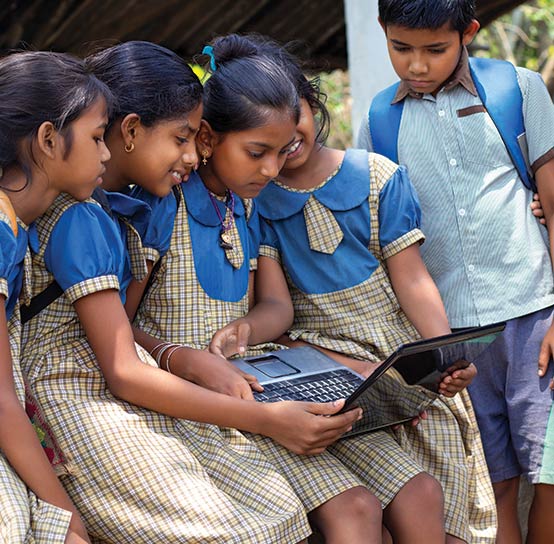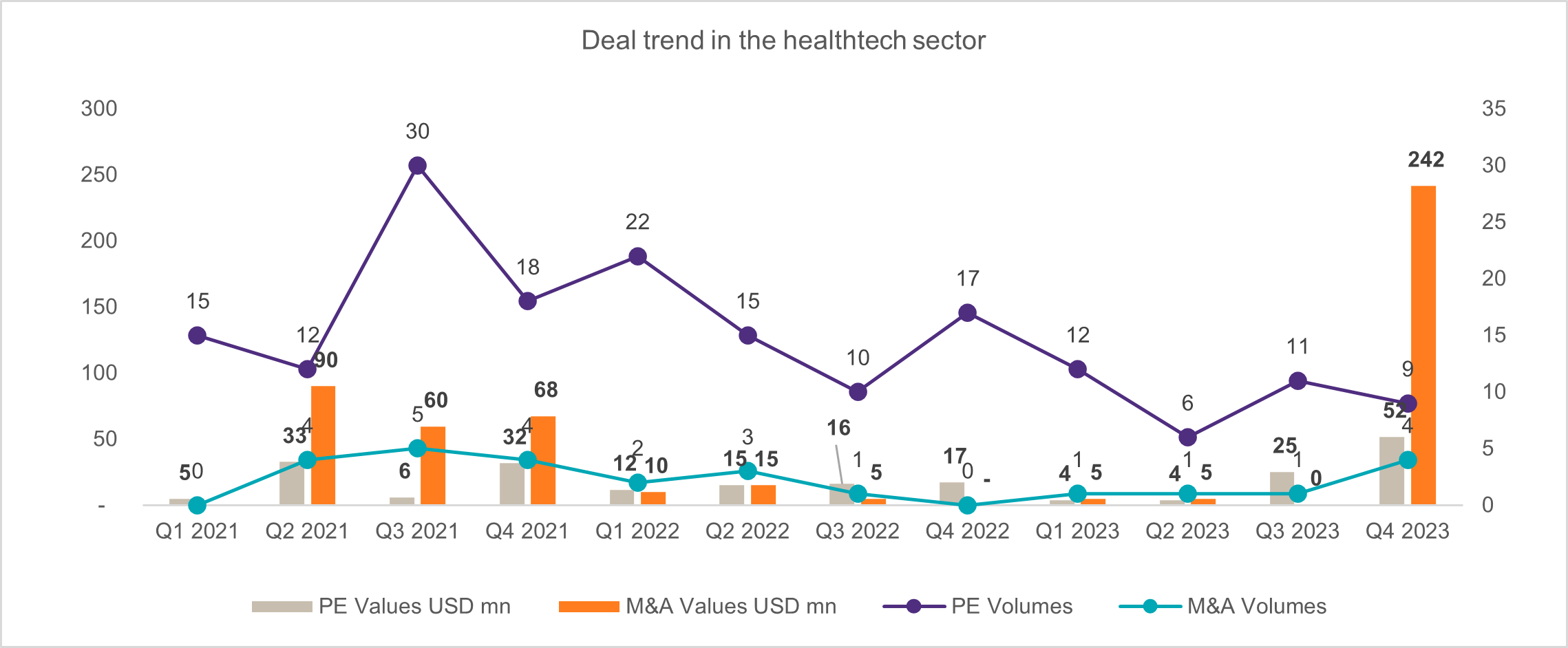-
Business Consulting
Our business consulting specialists offer a comprehensive blend of strategic advisory services. We assess the business, industry, operating model, synergy, skill sets and vision of the organisation and recommend the way forward
-
Digital Transformation Services
Grant Thornton’s digital transformation services help traditional businesses digitalise their business models with cloud technology, IoT consulting, app development and more DigiTech solutions.
-
Human Capital Consulting
Our Human Capital Consulting team harnesses technology and industry expertise to assist in constructing adaptable organisations with transparency, fostering productive and value-driven workforces, and inspiring employees to engage meaningfully in their tasks.
-
Production Linked Incentive Scheme
Production-linked Incentive Scheme by the Indian government is aimed at boosting manufacturing. Grant Thornton Bharat offers varied services across sectors to help businesses avail of this scheme.
-
Public Sector Advisory
Our Public Sector Advisory team has focused streams, aligned with the core priorities of the Government of India. We are responsible for providing innovative and customized technical and managerial solutions.
-
Tech Advisory
We have amalgamated Digital Transformation, IT Advisory & Information Management and Analytics into a new offering, DigiTech.
-
Direct Tax services
Our tax specialists offer a comprehensive blend of tax advisory, tax litigation, regulatory and compliance services, helping you navigate through complex business matters.
-
Indirect Tax Services
Get tax advisory service by leading tax firm Grant Thornton India. Our indirect tax services include advisory, compliance and litigation services for corporate, international and transaction tax
-
Transfer pricing services
Our transfer pricing services experts provide a range of services from provision of APA services to handling large global assignments including Country by Country reporting.
-
US Tax
At Grant Thornton, we help individuals and dynamic companies deal with US tax laws, which are one of the most complicated tax legislations across the world.
-
Financial Services - Tax
Best financial advisory services, tailored for small and large businesses by the experts having comprehensive knowledge of domestic laws and access to multifaceted tools to provide a valuable results.
-
Financial Reporting consulting services
Our experts have significant hands-on experience in providing IFRS/US GAAP services, end-to-end solutions and support services to fulfil financial reporting requirements.
-
Fund accounting and financial reporting
International operations often lack standardisation and have varied local reporting formats and requirements. Our experts can offer proactive insights, practical guidance, and positive progress and help meet regulatory timeframes.
-
Compliance and Secretarial Services
Our experts can assist in overhauling the entire compliance machinery of the organisation through evaluation of the applicable statutory obligations, monitoring of adequate governance controls, reporting and providing ongoing support.
-
Global People Solutions
As businesses transcend borders, both domestic and global considerations need equal attention. Our interim CFO and financial controller support services help organisations meet the business vision.
-
Finance and accounting outsourcing
Our accounting experts assist organisations in managing their accounting and reporting. Our dedicated Integrated Knowledge and Capability Centre (IKCC), allows us to service both the domestic and global markets efficiently and cost-effectively
-
Compliance Management System
We have automation solutions for you that will allow meeting government requirements and remain diligent, which when failed, can lead to penalties and loss in revenue.
-
IKCC: Grant Thornton's Shared Service Centre
The India Knowledge and Capability Centre (IKCC), aimed at delivering solutions by developing capabilities, has completed four years of its journey.
-
Global compliance and reporting solutions
At Grant Thornton Bharat, we meet the challenges of our clients and help them unlock their potential for growth. Our professionals offer solutions tailored to meet our clients’ global accounting and statutory reporting requirements. With first-hand experience of local reporting requirements in more than 145+ locations worldwide, we provide seamless and consistent international service delivery through a single point of contact.
-
Related Party Transactions Governance
Related Party Transactions Governance
-
Private Client Services
Private Client Services
-
Labour codes
Labour codes solutions help you transition through the new legislation. At Grant Thornton, we help businesses divide their approach to make sure a smooth transition.
-
Alerts
At Grant Thornton India, with the help of our tax alerts, we help to provide updates on how to minimise your tax exposure and risks.
-
Cyber
In today’s time, businesses have gone through large transformation initiatives such as adoption of digital technologies, transition to cloud, use of advanced technologies et al.
-
Governance, Risk & Operations
Our Governance, Risk and Operations (GRO) services encompass Internal Audit, Enterprise Risk Management, Internal Financial Controls, IT advisory, Standard Operating Procedures and other services.
-
Risk analytics
Grant Thornton Bharat’s CLEARR Insights is a state-of-the art data analytics platform that will help you in seamless data analysis and efficient decision-making.
-
Forensic & Investigation Services
The team of forensic advisory services experts consists of the best intelligence corporate experts, and fraud risk, computer forensic experts to deliver most effective solutions to dynamic Indian businesses.
-
ESG consulting
Grant Thornton Bharat offers holistic ESG consulting solutions for sustainable business outcomes. With industry expertise and AI technology, we drive long-term value.

-
Transaction Tax Services
Our transaction tax experts understand your business, anticipate your needs and come up with robust tax solutions that help you achieve business objectives ensuring compliance and efficiency
-
Deal Advisory
Unlike other M&A advisory firm in India, we offer deal advisory services and work exclusively with controlled and well-designed strategies to help businesses grow, expand and create value.
-
Due Diligence
Grant Thornton’s financial due diligence services are aimed at corporate looking for mergers and acquisitions, private equity firms evaluating investments and businesses/promoters considering sale/divestment.
-
Valuations
As one of the leading valuation consultants in India, Grant Thornton specializes in all the aspects of the process like business valuation services, financial reporting, tax issues, etc.
-
Overseas Listing
Overseas listing presents a perfect platform for mid-sized Indian companies with global ambitions. Grant Thornton’s team of experts in listings, work closely with clients during all stages.
-
Debt & Special Situations Solutions
Grant Thornton Bharat offers specialist debt and special situations consulting services, including restructuring, insolvency, and asset tracing solutions.
-
Financial Reporting Advisory Services
Financial Reporting Advisory Services
-
Financial Statement Audit and Attestation Services
Financial Statement Audit and Attestation Services

- Agriculture
- Asset management
- Automotive and EV
- Aviation
- Banking
- Education and ed-tech
- Energy & Renewables
- Engineering & industrial products
- FinTech
- FMCG & consumer goods
- Food processing
- Gaming
- Healthcare
- Urban infrastructure
- Insurance
- Media
- Medical devices
- Metals & Mining
- NBFC
- Pharma, bio tech & life sciences
- Real estate and REITs
- Retail & E-commerce
- Specialty chemicals
- Sports
- Technology
- Telecom
- Transportation & logistics
- Tourism & hospitality
-
India-UK
India-UK

The healthtech start-up landscape in India experienced a significant boost in funding and company growth, largely driven by the impact of the pandemic. With a population exceeding 1.4 billion and an escalating demand for healthcare services, investors are identifying lucrative opportunities in the healthtech sector. Leveraging India's robust IT capabilities, these start-ups are revolutionising healthcare through innovations like telemedicine platforms, tele-radiology, home healthcare solutions, artificial intelligence (AI)-driven diagnostics, and advanced health information systems. Telemedicine, in particular, has emerged as a transformative force, enhancing accessibility and saving time and costs, especially in rural areas.
Simultaneously, the government recognises technology as a pivotal tool to achieve universal health coverage. The collective efforts under Ayushman Bharat Digital Mission (ABDM) and eSanjeevani underscore the government’s dedication to harnessing technology. The Union Budget 2023-24 further includes several provisions aimed at promoting digital innovation to enhance the accessibility and affordability of healthcare, such as the establishment of AI centres of excellence and 100 labs for advancing 5G services.
Although the private sector dominates healthcare in India, healthtech start-ups have faced funding challenges over the past two years. Deal trends in both mergers and acquisitions (M&A) and private equity (PE) have been dynamic. After an overall downward trend from the second half of 2021 to 2022, the M&A deal trend witnessed a significant increase in both volumes and values in the latest quarter, Q4 2023, indicating a robust and active market. The steady rise in M&A volumes suggests a positive trajectory, possibly fuelled by market confidence and strategic business decisions.
PE activities, on the other hand, witnessed an overall decline in volumes after a peak of 30 deals witnessed in Q3 2021, attributed to factors like the ongoing funding challenges, economic slowdown, and a shift in investor preferences influenced by rising interest rates. Despite this decline, notable investors like 9Unicorns, Y Combinator, Sequoia Capital, Temasek, Quadria Capital, and Accel Partners remained active in the sector, reflecting ongoing interest.

Source: Grant Thornton Bharat Dealtracker
Despite these challenges, the future outlook for healthtech start-ups appears positive. Reports indicate that the healthtech market had an estimated size of USD 10.6 billion in 2022 and is projected to reach USD 21.3 billion by 2025. Various factors contribute to this growth, including rising income levels, an ageing population, increased internet and smartphone penetration, heightened government spending on digital infrastructure, greater health insurance penetration, and collaborations between healthcare providers and tech companies, collectively driving the expansion of the healthtech ecosystem.
Addressing the substantial demand-supply gap in healthcare, technology, particularly AI, holds the potential to bridge the ‘missing middle’ in India. Technology plays a crucial role in preventive healthcare, offering solutions such as early detection and screening, telemedicine, mobile health applications, smart wearables, and fitness trackers that encourage healthy lifestyles and disease prevention.
While technology holds immense potential to advance universal health coverage and drive the growth of the healthtech industry, it comes with the responsibility of handling personal health data appropriately. The new Digital Personal Data Protection Act (DPDPA), 2023, emphasises the importance of safeguarding personal data, providing an opportunity to build consumer trust for future growth. Ultimately, Indian consumers stand to be the biggest beneficiaries of the growth of healthtech in India.
